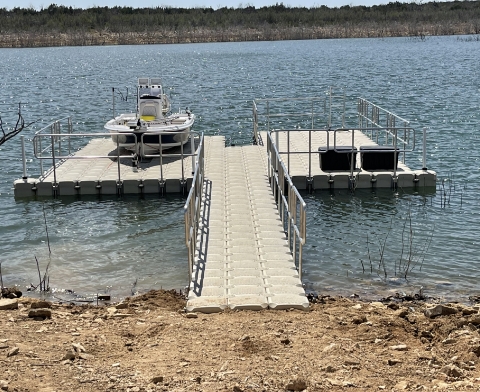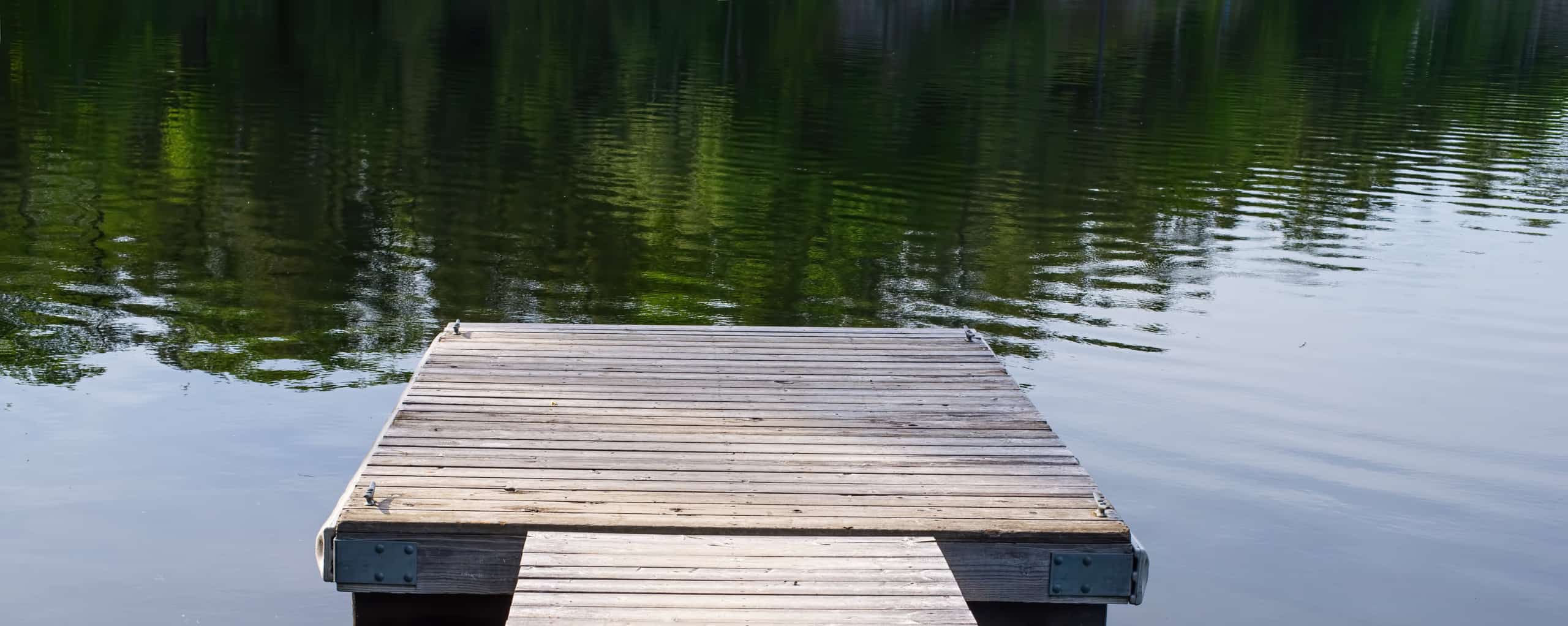Innovative Floating Docks: The Future of Waterside Access and Leisure
Innovative Floating Docks: The Future of Waterside Access and Leisure
Blog Article
Floating Docks: The Suitable Choice for Versatile Water Gain Access To
Floating docks present an engaging service for a range of water gain access to needs, using convenience that goes beyond standard mooring choices. Their ability to adjust to changing water degrees while making sure security and security makes them particularly beneficial for both recreational and business applications. In addition, the modular nature of floating docks helps with customization, satisfying certain requirements. However, the subtleties of installation and upkeep, alongside the array of applications, warrant a closer exam to completely appreciate their prospective benefits and implications for waterway accessibility strategies.
Advantages of Floating Docks
Floating docks deal many advantages that boost water gain access to for different applications. Their ability to fluctuate with changing water degrees makes them especially useful in environments with varying trends or seasonal variations. This flexibility makes sure that vessels can conveniently moor without issue for the water's depth, offering a dependable platform for recreational, business, and commercial uses.
In addition, floating docks are commonly constructed from sturdy products that stand up to corrosion, making them appropriate for lasting usage in marine settings. Their installation is usually much less intrusive than conventional fixed docks, reducing the ecological effect and promoting quicker deployment (floating docks). This versatility enables for easier relocation or reconfiguration according to individual requirements or ecological modifications
Security is one more key benefit; floating docks can supply steady accessibility for individuals boarding or getting off from watercrafts and reduce the threat of accidents related to unpredictable surface areas. They can be created to accommodate a range of devices, such as fenders and cleats, boosting capability. On the whole, floating docks represent a reliable remedy for boosting water gain access to across varied sectors while promoting safety and security and environmental sustainability.

Sorts Of Floating Docks
Various kinds of floating docks accommodate different requirements and settings, each created with particular functions to enhance performance. One of the most usual kinds include modular docks, which include interlacing sections that allow for very easy modification and expansion. These docks are suitable for leisure use, as they can be customized to fit different boat dimensions and water problems.
Another prominent choice is the fixed floating dock, which remains anchored in position yet drifts with altering water degrees. floating dock services. This kind is specifically suited for areas with marginal tidal changes, supplying steady access for angling or swimming. Additionally, there are drive-on docks, which include a sloped style that permits boats to easily drive on and off, making them appropriate for personal boat and smaller vessels
For commercial applications, heavy-duty floating docks are offered, created from enhanced products to hold up against considerable loads and extreme marine settings. Eco-friendly floating docks use sustainable products and designs to minimize ecological impact, usually integrating features like plants to sustain regional wildlife. Comprehending the numerous kinds of floating docks guarantees that users can pick the most proper option for their particular needs.
Setup Refine Summary
A successful setup of floating docks requires cautious preparation and attention to information to ensure optimal performance and security. The initial step entails examining the site problems, including water deepness, current, and potential obstacles. This assessment informs the selection of the ideal dock materials and design customized to the certain environment.
Next, obtaining required licenses is crucial, as numerous jurisdictions have guidelines relating to building and construction on water bodies. As soon as consents are safeguarded, the installation can proceed. Begin by preparing the structure, which might involve anchoring systems or pilings tailored to the dock type and local conditions.
Following the foundation setup, assemble the dock sections according to manufacturer specs. Guarantee that all elements are securely attached and aligned to withstand environmental anxieties. Setting the dock in the marked location, ensuring it is level and steady.

Upkeep Tips and Ideal Practices
After the setup process is complete, ongoing upkeep plays a vital function in guaranteeing the long life and capability of floating docks. Regular inspections need to be conducted to recognize any indications of degeneration, wear, or damages - dock company. Examine for any type of loosened installations, fractures, or separation in the dock areas, as these can compromise structural honesty
Cleansing the dock is important to More Info remove particles, algae, and other build-up that can influence its look and safety and security. Use a gentle pressure wash occasionally to keep cleanliness without creating damages to the surface. Additionally, using a safety sealant every few years can help enhance long life and resist ecological wear.
Focus on the mooring lines and supports, guaranteeing they are safe and secure and totally free from deterioration. Change any kind of degraded parts quickly to avoid dangers. Seasonal adjustments may likewise be needed; during extreme weather, repositioning or reinforcing the dock can prevent damages.
Applications for Floating Docks
Floating docks offer a plethora of applications, satisfying both commercial and leisure needs. In recreational settings, they supply smooth accessibility to rivers for tasks such as boating, read more angling, and swimming. Their flexible nature enables for setup in varying water degrees, ensuring stable and safe accessibility no matter of tidal changes.
Readily, floating docks are vital for marinas and waterfront businesses. They help with the docking of vessels, making it possible for efficient packing and dumping of products. Their modular layout permits easy expansion or reconfiguration to suit altering business demands, making them excellent for watercraft services, tour procedures, or fishing charters.
In addition, floating docks are used in ecological applications such as aquatic study and environment repair. They can work as platforms for scientific studies, keeping an eye on water high quality, or performing wildlife studies without disturbing delicate ecological communities.
In industrial contexts, floating docks are employed in construction tasks, providing access to hard-to-reach locations for equipment and employees. Their convenience, resilience, and minimal effect on the environment make them an optimal option for a large range of applications, boosting both capability and availability in numerous water-based environments.
Conclusion
In final thought, floating docks stand for an optimum remedy for varied water accessibility needs, owing to their versatility, toughness, and modular design. Floating docks serve as a valuable basics possession for recreational, industrial, and environmental projects, making sure reliable accessibility to rivers and promoting sustainable techniques in water settings.
Floating docks existing a compelling remedy for a selection of water accessibility requires, offering flexibility that goes beyond standard mooring options.Floating docks deal many benefits that boost water access for different applications. In general, floating docks represent a reliable service for boosting water gain access to throughout diverse sectors while promoting safety and environmental sustainability.
Another popular option is the stationary floating dock, which continues to be anchored in area however drifts with altering water levels.In conclusion, floating docks represent an optimal option for diverse water gain access to needs, owing to their flexibility, toughness, and modular style.
Report this page